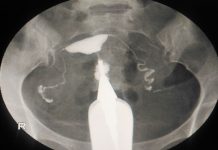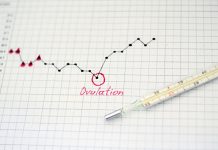In this Article
As a couple, you may have spent many years trying not to conceive a baby by having protected sex. Now, you have made a decision to get pregnant, and want to make it happen quickly. This article discusses the best time to try getting pregnant, and methods that you can use to conceive a baby, along with useful tips and suggestions that you can use, as a couple, to conceive a healthy baby naturally.
How to Get Pregnant Fast?
As a young couple under the age of 35, if you have been having unprotected sex regularly, it should take a maximum of 6 months to conceive a baby. However, it is probably time to seek medical help if you have not conceived despite trying for over a year. The same recommendation goes for couples over the age of 35, who have not conceived after a period of 6 months.
At the same time, it is important to remember that conceiving can take time. It is estimated that a healthy 30-year old woman only has a 20% chance of getting pregnant any given month. Hence, as a couple, you must not stress about not getting pregnant, and must continue to enjoy your sex life regularly.
Listed below are some of the basic steps you must take as a couple to increase your chances of conception:
- Ensure that you are having sex regularly.
According to fertility experts, you should have sex regularly, but not daily, as sperm can easily survive up to 7 days. Maintain sufficient time gap between the incidences of sexual intercourse, in order to give enough time for the sperm to build up. Additionally, there are only 6 days in a month when you can conceive a baby. This includes the 5 days prior to ovulation, along with the day of ovulation.
- Withdraw birth control measures in advance.
Some hormonal forms of birth control can reduce your fertility even after you discontinue their use. In the case of birth control pills, its hormone effect should not be long-lasting, and you should be able to return to your regular menstrual cycles prior to the use of these pills. If you use intrauterine devices (IUD), ensure that you get the device removed by a health-care professional in order to regain your fertility. The effects of Depo-Provera can be more long-lasting; therefore, stop taking the shots at least a year prior to trying to conceive, to improve your chances of pregnancy.
Additionally, you must get rid of any unhealthy habits, such as smoking and alcohol consumption, to help you conceive a healthy baby. Following a regular dosage of folic acid (at least a month before trying to conceive) can improve your chances and reduce the risk of any birth defects in your baby. Maintaining a normal body weight and limiting your intake of caffeine to around 16 ounces each day can also help.
When is the Best Time to Conceive?
The best time to get pregnant is during the ovulation period, a period when a mature egg is released from the ovary. While a sperm is able to survive for 48 to 72 hours after sex, the mature egg can only live for 12 to 24 hours after ovulation. This means that the female egg can only get fertilized 12-24 hours after it is released. Hence, to increase your chances of conception, it is best to have sex around 2-3 days before ovulation. This ensures that there is a healthy supply of sperm in the Fallopian tube to fertilize the egg when it is finally released.
Predicting when your ovulation will happen can help immensely in conceiving your baby.

In the average 28-day menstruation cycle for any woman, ovulation happens only once and is generally around 14 days prior to the start of the next cycle. However, women with a 28-day menstruation cycle are in the minority, as most women have a menstruation cycle lasting between 24 to 35 days. As ovulation occurs 14 days before the last day of the cycle, or the day when you get your periods, it means that it could happen on day 10 for a woman with a 24-day menstruation cycle or on day 21 for a woman with a 35-day menstruation cycle.
Women with regular menstrual cycles can make use of devices such as the ovulation calculator, to predict your ovulation time each month. Additionally, ovulation prediction kits that test your hormone levels throughout your menstruation period, will be able to determine which day you are likely to ovulate.
For women with irregular periods, predicting when ovulation will happen can be a little difficult. If your menstrual cycle is irregular, you can look for the following symptoms that could indicate that ovulation is happening:
- Note any increase in your basal body temperature.
Your basal body temperature is the temperature of your body at rest. This temperature increases slightly during the ovulation process. Take a measurement of your body temperature using a thermometer each morning before you get off your bed. You can detect your temperature patterns from your recordings. Fertility will be at the highest 2-3 days before the temperature rise.
- Note any change in vaginal secretions.
Observe any increase in wet and sticky vaginal secretions, which happens just before ovulation. After ovulation, the cervical mucus lessens and appears to be thicker and cloudier.
Have Sex Before the Ovulation Time Period
Once you have estimated the monthly time frame of your ovulation, you should plan to have sex during the fertility window, which lasts two to three days before ovulation and on the day of your ovulation.
If you are unsure about the fertility window, aim to have sexual intercourse regularly during the second and third week of your menstruation cycle. This will ensure that there are enough healthy and active sperm in the Fallopian tube before the release of the egg.
Additional tips about having sex before ovulation include ensuring that you, as a couple, have not gone through the long dry spell of not having sex prior to having intercourse during the fertility period. To prevent the build-up of dead sperm in his semen, men should also ejaculate at least once in the days before having intercourse.
Best Ways to Increase your Chances of Pregnancy
As a couple, you must both be in the best of physical health before you even try to conceive a baby. Most doctors would recommend that you fix an appointment with an obstetrician to discuss any health problems and to get screened for any genetic disorders. Additionally, your doctor can recommend you make some lifestyle-related changes, which can improve your chances of conception.
Avoid the use and consumption of the following:
1. Use of Vaginal Lubricants
Many research studies have shown that the use of vaginal lubricants can damage the sperm and interfere with their movement to the uterus to fertilize the egg. This is because the pH level (acidity) of lubricants are high enough to kill the sperm. Instead of harmful lubricants, use foreplay activities such as sensitive touching, kissing, and hugging for 15 to 20 minutes before having intercourse. If foreplay does not work, it is better to use warm water as a lubricant, as water is not toxic to sperm.
2. High Caffeine Consumption
Research studies have proven the relationship between high caffeine consumption and the inability to conceive. While consuming around 200-300 mg of caffeine (equivalent to 2 cups of coffee) each day is fine, consumption of over 500 mg (or 5 cups of coffee) should be avoided, as it can reduce fertility in the long run.
3. Alcohol Consumption
Although there has been no research about the safe levels of alcohol consumption, women who are trying to get pregnant must avoid its consumption completely. It is also recommended that women don’t drink during the second half of the menstruation cycle, after the ovulation.
4. Smoking
Scientific studies have proven that couples who smoke take a long time to conceive. Smoking must be strictly avoided by both partners when trying to have a baby. Not only can regular smoking impact your fertility, it can even impact your child’s future fertility level. Additionally, smoking can harm the female ovaries, cause low sperm count in men, increase the loss of eggs, and even result in early menopause for the woman.
Additional complications caused due to smoking include increased risks of miscarriage, along with premature or underweight babies.
5. Stress
High levels of stress can affect fertility in men and impact ovulation in women. Stress can cause a delay in the ovulation cycle, make you miss ovulation, or even increase the duration of the menstruation cycle. Stress due to finances, changing houses, and careers, that couples face, can delay their conception efforts.
Stress-relieving exercises, such as yoga or any mind-body relaxation programs, can help you relax and improve your overall chances of conception.
While there is no scientific evidence of any particular foods or diet that can improve conception, women are advised to consume a healthy and balanced diet to improve their conception chances. This can include consumption of fishes and seafood such as shrimp, salmon, and catfish, which are low in mercury. At the same time, avoid fishes such as shark, swordfish, and king mackerel, which are high in mercury and have been known to be associated with infertility.
Useful Tips for Getting Pregnant Fast and Naturally
Here is a list of useful tips and suggestions that couples can follow to get pregnant fast and naturally:
- Sex Positions: The classic man-on-top position would be the best recommendation. Avoid immediately leaping out of bed after the completion of the sexual intercourse. Additionally, keeping a pillow under your hips and keeping your legs raised after sex for about 20 minutes can improve the chances of the sperm entering the egg.
- For Stronger and Healthier sperm: Strong and healthy sperm always have a higher chance of fertilizing an egg. Men are recommended to make the following lifestyle changes to improve the quality of their sperm:
- Avoid tobacco, marijuana, or any other drugs.
- Limit the daily consumption of alcoholic drinks.
- Maintain a healthy body weight.
- Having a balanced diet comprising of whole grains, fish, and vegetables can improve male fertility. Foods rich in Vitamin C can boost sperm motility (or movement), while foods such as oysters, beef tenderloin, and baked beans can supply zinc that is necessary to avoid infertility. Additionally, low levels of Vitamin B can impact sperm health; hence, men must consume healthy breakfast cereals, leafy green vegetables, and orange juice daily.
- Avoid the use of hot bathtubs or saunas, as high temperature can kill sperm. It is recommended to take hot water bath at around 94-96 degrees Fahrenheit, which is slightly lower than our normal body temperature.
- According to experts, men should wear loose boxers or shorts, instead of tighter briefs, which can help in keeping the testicles cooler and boosting sperm production. Additionally, men should avoid keeping electronic devices such as laptops on their lap, which can increase the temperature of the testicles and can harm sperm production.
While achieving orgasms can improve the feel-good factor of having sexual intercourse, it does not impact conception in any way.
As infertility is a problem that can impact both men and women, seeking medical consultation and help from a qualified doctor is required and recommended at the earliest.









